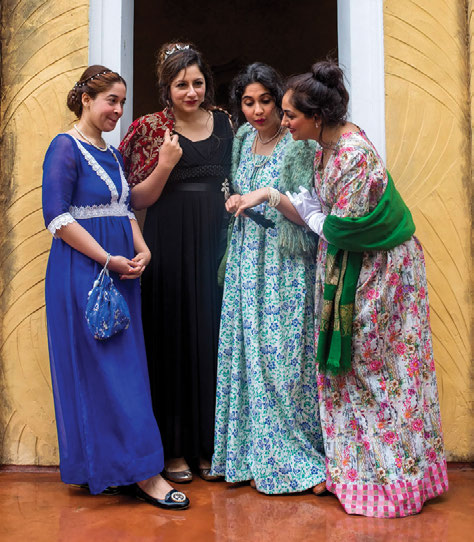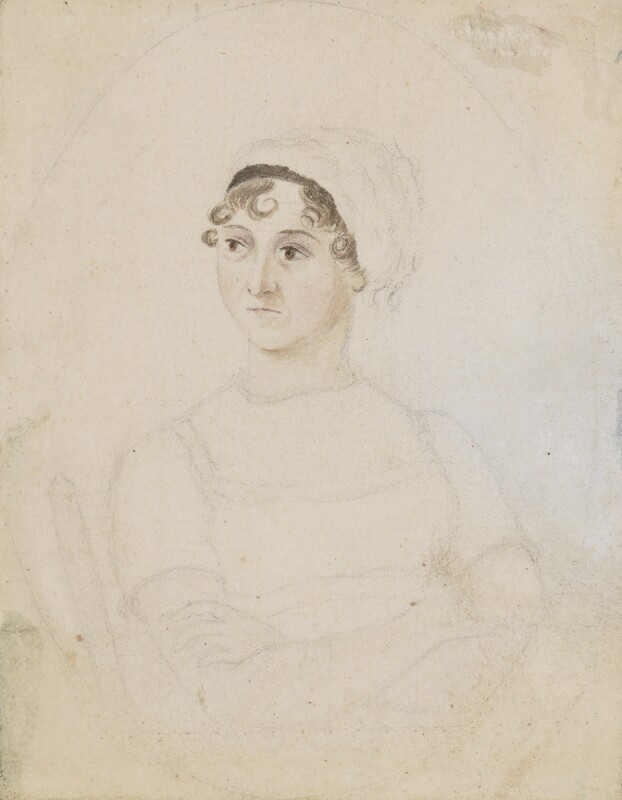Pride v. Prejudice: Clark alumna fights for women’s rights in Pakistan


The women are ushered from reception to reception during the social season. They are young, determined, and each has one goal: to attract the attention of a gentleman in attendance.
The male guests take notice.
When a man’s interest is piqued, he finds out all he can about the woman — family background, education, reputation — and, if his family approves, a meeting will be arranged.
It’s a scene right out of “Pride and Prejudice,” something author Jane Austen would have imagined for her 19th-century heroines and heroes. But it’s playing out in 2018 Pakistan, where Austen’s truth — that “a single man in possession of a good fortune, must be in want of a wife” — is still considered universal.
I hate to hear you talk about all women as if they were fine ladies instead of rational creatures. None of us want to be in calm waters all our lives.
PERSUASION
Jane Austen, who published only six novels (two of them posthumously), remains a popular author around the world. Her books appear on lists of the best novels ever written. Yet in Pakistan, her works are more than entertainment.
“Life is very similar” to Austen’s Regency England, says Laaleen Sukhera ’99, MSPC ’00, who recently edited an anthology of short stories called “Austenistan,” paying homage to the novelist. “In Pakistan, it’s still very much about maintaining a social veneer. It’s about what society might think, and competing with one another on so many levels.”

Sukhera, who has worked for 15 years as a freelance writer and consultant, is founder of the Jane Austen Society of Pakistan (JASP), which started as a Facebook group for like-minded Austen enthusiasts. JASP has grown to include chapters in all of Pakistan’s major cities and boasts an online community from more than 45 countries. Once a year, members gather for an Austen tea, donning period dresses and discussing all things Jane. They also share experiences about the reality of life for women in Pakistan today.
“We’re 21st-century women, but we’re surrounded by a Regency mindset,” Sukhera says, referring to the era in British history from the late 18th century to the early 19th century. “Women are expected to marry well during peak childbearing years and even the wealthiest of us mostly live with our in-laws, albeit in a separate wing in an urban mansion.” Pakistani women may be able to work high-powered careers, she adds, but they are dramatically outnumbered in senior positions. And many are prevented from their rightful inheritance by domineering male relatives and mountains of red tape. As for alimony and marital property, there is practically nothing to speak of.
While the Regency world may have considerable charm, Sukhera says, “The realities from the era are grim. Jane Austen writes a great deal about practicalities: How much does he have per year, and what is her portion? Is she an heiress? Are they of noble birth? She talks about financial truths, and that’s very much the case here, whether it’s politics or society or family dynamics. It’s all about power through money and class privilege.”
Despite their burdens, “Austen’s women are strong and rebellious,” Sukhera says. The books are never “preachy,” yet they are female-centric — which is feminist in itself.
Like the women of today’s Pakistan, the lives of the women who inhabit Austen’s world are dictated by society and family. Marriages aren’t always love matches, but may strengthen family fortunes. And “happily ever after” is often anything but.
If adventures will not befall a young lady in her own village, she must seek them abroad.
NORTHANGER ABBEY
Born in Lahore, Pakistan, Sukhera is the middle-born of three siblings. Her family spent part of her elementary school years living in Houston, later returning to Lahore, where she attended a British-curricula high school. She was a voracious reader, and Austen was her favorite.
Her older sister attended Clark University for a year and encouraged Sukhera to apply. “I didn’t want to copy my big sister, but I ended up coming anyway,” she laughs. It helped that two of her best friends enrolled not far away at Tufts and Yale.
At Clark, she double-majored in screen studies and communication and culture. This was just after the release of the popular film adaptation of “Pride and Prejudice,” with Colin Firth as hero Mr. Darcy. “There was a kind of ‘Darcy Fever,’ ” she says. “That’s when I started noticing how similar life at home was to the culture in the books.” Her honors thesis explored how screen adaptations of Jane Austen’s novels depict a postmodern, transnational form of Englishness. “It sowed the seeds for where I am today.”
After interning at Merchant Ivory Productions and earning a master’s degree in professional communication at Clark, Sukhera moved to New York City and worked in advertising and television. She then received news that changed her path: Her mother was very ill. Sukhera moved home to Lahore, and after her mother’s death, she stayed in the city and worked in the television industry.
“And suddenly, I found myself swept off my feet and married,” she says, to a businessman whose family owned a chain of private schools. Like “Pride and Prejudice” heroine Elizabeth Bennet, Sukhera wasn’t going to marry simply for convenience and economic security. She would marry for love and have her happy ending.
Happiness in marriage is entirely a matter of chance.
PRIDE AND PREJUDICE

Sukhera’s real-life hero was no Mr. Darcy. The couple had three daughters, now ages 11, 10, and 5, but the marriage was abusive. Her husband, who traveled extensively for work, placed restrictions on what Sukhera could do. When he was home, the stress level would increase dramatically. “Then he would leave again, and I could breathe and write,” she recalls.
As her marriage deteriorated, Sukhera found herself identifying more deeply with Austen’s heroines. She began developing “Austenistan” in the difficult summer before her separation, which gave her hope. “It was the one thing that made me happy — besides my kids, of course — but kids make you feel vulnerable as well, because you stay. You can’t just walk out.”
In the end, it wasn’t up to her. Her husband took the children and put them in the custody of his mother. Sukhera left the house with nothing but her laptop. She tried to negotiate a separation and joint custody but discovered her husband had already filed cases in court against her.
“And believe it or not, Jane Austen was mentioned in court. He kept saying I had abandoned my children for Jane Austen. It didn’t make sense,” she says.
Sukhera was awarded sole custody of her daughters once her case reached the high court. “Courts mostly feel that capable mothers are best equipped to raise children. But you’ll generally get meager child support, if at all, unless the father or his family chooses to be benevolent, which is rare.” And in her case, she says, her children’s father refuses to return their daughters at the end of his visitations. Despite preventing her petitions for divorce for the past two years, he has remarried. Sukhera is currently seeking justice through the Supreme Court of Pakistan.
“I have high hopes,” she says.
We all have a better guide in ourselves, if we would attend to it, than any other person can be.
MANSFIELD PARK
Instead of suffering in silence, Sukhera decided to go public, sharing her story on Twitter and in the media, where it went viral among influential circles.
“We’re struggling between the old world and the new in Pakistan,” she says. “I’m tired of going along with it; I want to be part of the narrative, and change that narrative not just for myself but for other people in my position.”
With her international education and opportunities, Sukhera is considered a woman of privilege in her country. Yet she insists that she and others like her share many of the same experiences as women of lower socio-economic status, which is why it’s essential they form a united front.

“There’s a feminist movement here, and I felt as a single mother I should make my voice heard so that other voices could join me instead of staying mute about their oppressive personal lives,” she says.
While it was difficult at first to talk about her crumbling marriage in public, Sukhera knew she had to come forward to protect her daughters — and herself. “I had been pushed against the wall too many times.”
As she’s talked to the media about her own situation, she’s discussed the overlap of Jane Austen’s world with that of Pakistani women today. That theme has been central to the high-profile interviews she gave to celebrate the publication of “Austenistan.” Read coverage in 1843 Magazine and on NPR.
The book features seven short stories set in modern Pakistan, inspired by Austen’s novels, and includes a foreword written by Jane Austen’s fifth great-niece. None of the writers, including Sukhera, had published fiction before; their professions include journalism, law, biology, and education. But they all love Austen, and they write about what they know — life in Pakistan today.
Know your own happiness. Want for nothing but patience — or give it a more fascinating name: Call it hope.
SENSE AND SENSIBILITY
“She was smarter than I was in so many ways,” Sukhera says of Jane Austen. “She became engaged but called it off the next day, even though he was a landed gentleman and she would have had a much easier life. But her heart wasn’t in it, so she went against societal expectations and lived by her pen. I had doubts the night before my marriage, but I lacked her courage to cancel my big fat wedding.”
Despite her marital strife, Sukhera is grateful. When she first separated from her husband, “I felt like a broken person; I had lost my confidence because it felt like he’d taken everything from me. The rebuilding has been hard, but I think it has worked, because I’ve definitely moved onwards and upwards.
“Some people my age may feel their lives are half over; I feel like mine is just beginning. I feel like the 2.0 version of myself.”
Editor’s note: This story appeared in the winter 2019 issue of Clark Magazine.


